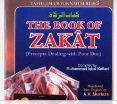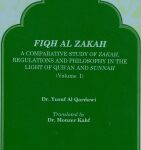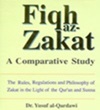Islamic Months
Home > Islamic Months
Islamic Months
MONTH OF MUHARRAM

Muharram being the first month of the Islamic New Year holds great importance in Islam. It is one of the four sacred months in the Islamic calendar. Muharram in its literal sense means “forbidden”. Similar to the other sacred months, waging war during this month is forbidden. Click here to read more
MONTH OF RAJAB

Prophet Mohammad (pbuh) used to welcome this month by saying:
اللّهمّ بارك لنا في رجب و شعبان وبلّغنا رمضان
Allhumma barik lana fi Rajab wa Sha’ban wa ballighna Ramadan
“O Allah, make the months of Rajab and Sha’ban blessed for us, and let us reach the month of Ramadan.
Rajab (Arabic: رَجَب) is the seventh month of the Islamic calendar. The lexical definition of the classical Arabic verb rajaba is “to respect” which could also mean “be awe or be in fear”, of which Rajab is a derivative.
This month is regarded as one of the four sacred months (including Muharram, Dhu al-Qadah and Dhu al-Hijjah) in Islam in which battles are prohibited. The pre-Islamic Arabs also considered warfare blasphemous during the four months. Click here to read more
MONTH OF SHABAAN 
Shaʽban (Arabic: شَعْبَان, Šaʿbān) is the eighth month of the Islamic calendar. It is the month of “separation”, so called because the pagan Arabs used to disperse in search of water. Read more
MONTH OF RAMADAN
Ramadan is a month of fasting, reflection, devotion, generosity and sacrifice observed by Muslims around the world. Over the centuries Ramadan has retained its passionate spiritual meaning. The word “Ramadan” comes from the Arabic word for “Parched Thirst” and “Sun-Baked Ground.” It is meaningful of the hunger and thirst felt by those who spend the month in fasting and get benefits of fasting in the month of Ramadan. Ramadan is by nature a time of sacrifice. Read more

Need to know more on the FIQH of fasting (the dos and don’t) for the Month of Ramadan. CLICK HERE

The Book of Zakaat (precepts Dealing with Poor Dues)….by Muhammad Iqbal Kailani Click here

The Fiqh Al Zakat: A Comparative study of Zakat,Regulation and Philosophy in the light of Quran and Sunnah (Vol 1). Click
 Fiqh az Zakaat Zakaat A Comparative Study Volume 2 Click here
Fiqh az Zakaat Zakaat A Comparative Study Volume 2 Click here

